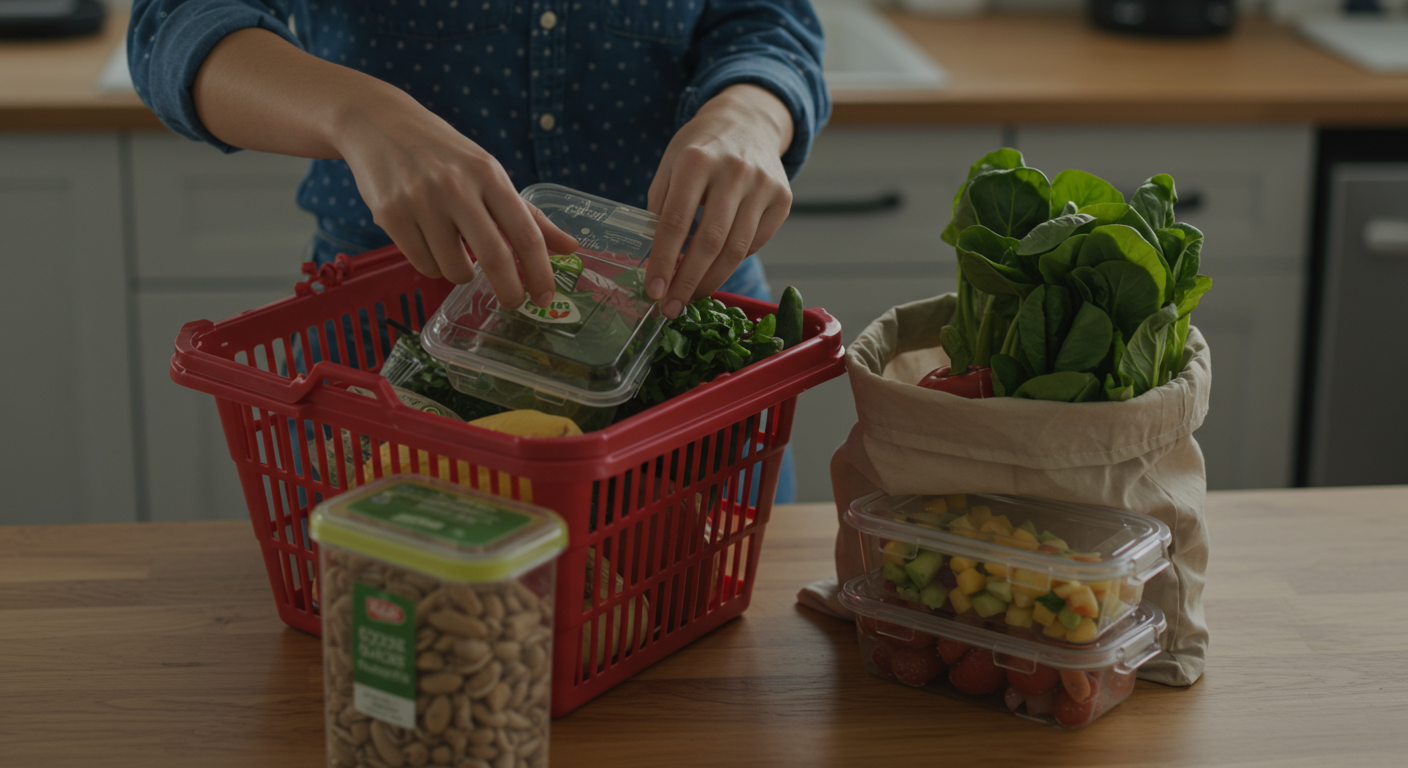Embracing a vegan lifestyle is a powerful step towards compassion and environmental responsibility. But, for experienced vegans, the journey extends far beyond the plate. This guide dives deep into the world of sustainable veganism, exploring how to make ethical shopping choices, create a zero-waste home, and live in greater alignment with your values.

Deep Dive into Sustainable Vegan Living for Experienced Vegans
As seasoned vegans, you've mastered the basics of plant-based eating. Now, it's time to elevate your commitment by integrating sustainability into every aspect of your life. This means making informed choices about the products you buy, the waste you generate, and the impact you have on the planet.
Advanced Strategies and Insights
Ethical Shopping: Beyond the Label
Ethical shopping goes beyond simply checking for a "vegan" label. Consider these advanced strategies:
- Research Brands: Investigate the brand's overall ethical practices, including fair labor standards, environmental impact, and commitment to transparency.
- Support Local: Prioritize buying from local vegan businesses and artisans to reduce your carbon footprint and support your community.
- Embrace Minimalism: Before buying anything new, ask yourself if you truly need it. Consider borrowing, renting, or buying secondhand.
Zero-Waste Vegan Home
Reducing waste is a cornerstone of sustainable veganism. Here's how to minimize your environmental impact at home:
- Refuse, Reduce, Reuse, Recycle, Rot: Follow the five Rs of zero waste. Refuse unnecessary items, reduce consumption, reuse what you have, recycle properly, and compost food scraps.
- DIY Cleaning Products: Make your own cleaning solutions using simple ingredients like vinegar, baking soda, and essential oils.
- Compost Kitchen Scraps: Start a compost bin to reduce landfill waste and create nutrient-rich soil for your garden.
Vegan Home Essentials
- Cruelty-Free Cleaning Products: Choose brands that prioritize both vegan and eco-friendly formulations like Dr. Bronner's for soaps and cleaning solutions.
- Sustainable Kitchen Tools: Opt for tools made from bamboo, stainless steel, or recycled materials.
- Reusable Food Storage: Replace plastic wrap and bags with reusable options like beeswax wraps and silicone storage containers.
Sustainable Fashion
- Shop Secondhand: Explore thrift stores, consignment shops, and online platforms for pre-owned clothing.
- Choose Eco-Friendly Fabrics: Look for clothing made from organic cotton, linen, hemp, and recycled materials.
- Support Ethical Brands: Research brands that prioritize fair labor practices and sustainable manufacturing processes.
Optimizing Your Vegan Lifestyle
Nutrition and Supplements
While you likely have your diet dialed in, consider these advanced nutritional insights:
- B12 Supplementation: Ensure you're consistently supplementing with B12, essential for vegans.
- Omega-3 Fatty Acids: Incorporate algae-based omega-3 supplements for optimal health.
Travel and Transportation
- Eco-Friendly Travel: Choose airlines and accommodations with sustainability initiatives.
- Reduce Transportation: Walk, bike, or use public transportation whenever possible.
Case Study: Thriving on an Advanced Vegan Path
Meet Sarah, a long-time vegan who decided to overhaul her lifestyle. She started by auditing her home, identifying areas for improvement like switching to Dr. Bronner's for cleaning and making her own nut milk to reduce packaging. Sarah also started shopping at local farmers' markets and secondhand stores, reducing her waste and supporting her community. Her journey shows that sustainable veganism is a continuous process, always evolving and adapting to new challenges and opportunities.
Navigating Complex Vegan Challenges
- Ingredient Sourcing: Be mindful of where ingredients come from, considering environmental and ethical impacts.
- Supporting Small Businesses: Focus on ethical brands and small businesses to support sustainable practices.
Integrating Advanced Vegan Practices
- Educate Others: Advocate for ethical and sustainable practices within your community.
- Participate in Activism: Get involved in organizations promoting environmental protection and animal welfare.
Scaling Your Impact: Beyond Personal Choices
- Invest Ethically: Align your investments with your values by supporting companies that prioritize sustainability and ethical practices.
- Advocate for Policy Change: Support policies that promote environmental protection and animal rights.
Expert-Level Vegan Living Insights
- Constantly learn and adapt: Sustainability is a journey. Stay informed about the latest innovations and best practices.
- Connect with like-minded individuals: Join online communities and local groups to share experiences and inspiration.
- Embrace imperfection: Don't strive for perfection. Every small step contributes to a more sustainable future.